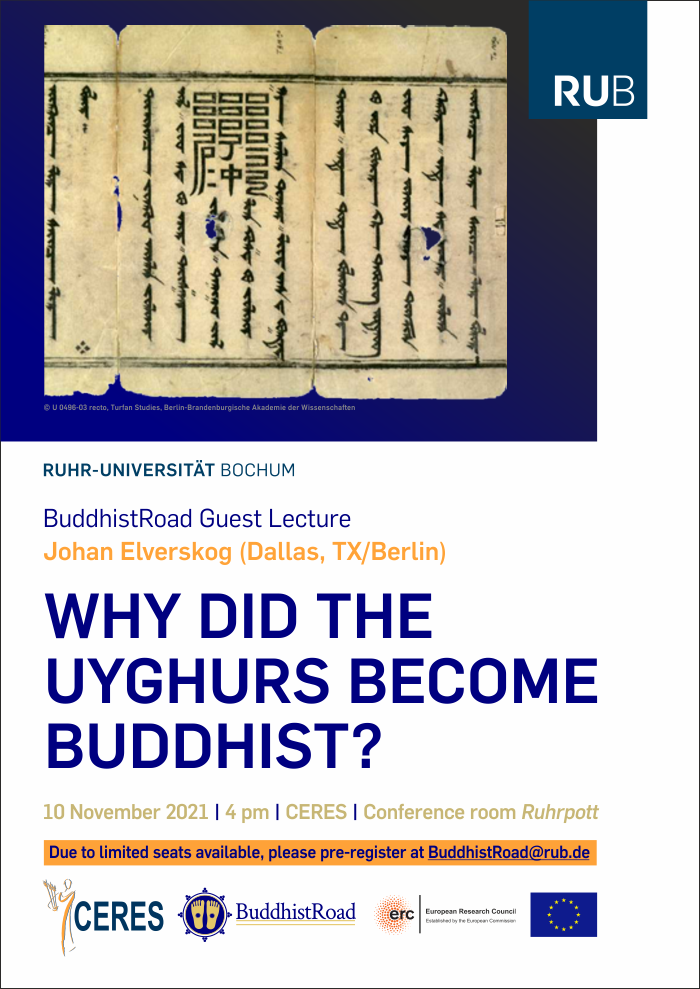Why did the Uyghurs become Buddhist

10 November 2021 - Johan Elverskog (Dallas, TX/currently Berlin)
Why did the Uyghurs become Buddhist?
public guest lecture at BuddhistRoad project, CERES, Ruhr-Universität Bochum
In 762 CE, the ruler of East Uyghur Khanate (ca. 744–840, also known as Uyghur Steppe Empire), Bügü Khan (759–779), converted to Manichaeism. The Uyghur elite continued to embrace this tradition even when their empire on the Mongolian Plateau collapsed and they fled to present-day northwest China. But around the year 1000, the Uyghurs converted to Buddhism, the dominant religion among their subject peoples—the Chinese, Sogdians, and Tocharians—and would remain Buddhist until their conversion to Islam centuries later.
Johan Elverskog explores the Uyghurs’ conversion in the larger context of Eurasian geopolitics and the contemporary messianic belief that the end of the dharma was nigh. Johan Elverskog is a historian. He is Dedman Family Distinguished Professor at Southern Methodist University and specialises in inter-Asian cross-cultural exchange and interaction. His recent and forthcoming publications include: Johan Elverskog, "The Buddha’s Footprint: An Environmental History of Asia" (Philadelphia: University of Pennsylvania Press, 2020) and "The Precious Summary: A History of the Mongols" (New York: Columbia University Press, forthcoming). Elverskog was 2013 Visiting Research Fellow at the Käte Hamburger Kolleg "Dynamiken der Religionsgeschichte" in Bochum.


